Pogo Devlog (15 Part Series)
1 Compiling Python to Go (Pogo Pt:1)
2 Creating a Target (Pogo Pt: 2)
… 11 more parts…
3 Defining the Tokens (Pogo Pt: 3)
4 Lexing the Source (Pogo Pt: 4)
5 Upgrading Tokens (Pogo Pt: 5)
6 Parsing Python (Pogo Pt: 6)
7 Creating Python’s AST (Pogo Pt:7)
8 Finally, Golang from Python (Pogo Pt:8)
9 Semantic Analysis (Pogo Pt:9)
10 Implementing Functions (Pogo Pt:10)
11 Line Numbers in Errors (Pogo Pt:11)
12 Validating Function Parameters (Pogo Pt:12)
13 Calling Functions (Pogo Pt:13)
14 Returning From Functions (Pogo Pt:14)
15 Compiler Cleanup (Pogo Pt:15)
Intro
In this series I am creating a transpiler from Python to Golang called Pogo. In the last post we did some good work on function calls, and all the type logic surrounding them more sound. This will be the last post on Pogo sadly, unless I decide to pick this project back up, which is very likely because I did enjoy this a lot. But there’s a reason this is the last post, and that’s because it’s the end of the month, which mean a new project will start (I’ll talk more about it at the end of this post)!
Comments
Now let’s start fixing some loose-ends on our compiler. Our first issue is comments. I haven’t touched comments since they were pretty much implemented. Because of this, they are very error prone. Whenever we write a comment and transpile, the comment starts with ‘#’, which isn’t how comments start in Go. To fix this, we’re going to the source of the comment, which is at the lexer. This actually turned out to be a single line change.
<span>note</span> <span>:=</span> <span>string</span><span>(</span><span>append</span><span>([]</span><span>byte</span><span>{</span><span>'/'</span><span>,</span> <span>'/'</span><span>},</span> <span>l</span><span>.</span><span>source</span><span>[</span><span>start</span><span>+</span><span>1</span><span>:</span><span>l</span><span>.</span><span>curPos</span><span>+</span><span>1</span><span>]</span><span>...</span><span>))</span><span>note</span> <span>:=</span> <span>string</span><span>(</span><span>append</span><span>([]</span><span>byte</span><span>{</span><span>'/'</span><span>,</span> <span>'/'</span><span>},</span> <span>l</span><span>.</span><span>source</span><span>[</span><span>start</span><span>+</span><span>1</span><span>:</span><span>l</span><span>.</span><span>curPos</span><span>+</span><span>1</span><span>]</span><span>...</span><span>))</span>note := string(append([]byte{'/', '/'}, l.source[start+1:l.curPos+1]...))
Enter fullscreen mode Exit fullscreen mode
All we are doing here is getting rid of the ‘#’ by using start+, then adding “//” to the start using append.
Multi-Line Comments
Another feature I forgot about was multi-line comments. This shouldn’t be too hard to implement, so let’s start working on it. First we need to make it a valid token in the lexer.
<span>else</span> <span>if</span> <span>l</span><span>.</span><span>curChar</span> <span>==</span> <span>'''</span> <span>{</span><span>if</span> <span>string</span><span>(</span><span>l</span><span>.</span><span>source</span><span>[</span><span>l</span><span>.</span><span>curPos</span><span>:</span><span>l</span><span>.</span><span>curPos</span><span>+</span><span>3</span><span>])</span> <span>==</span> <span>"'''"</span> <span>{</span><span>start</span> <span>:=</span> <span>l</span><span>.</span><span>curPos</span><span>l</span><span>.</span><span>nextChar</span><span>()</span><span>for</span> <span>string</span><span>(</span><span>l</span><span>.</span><span>source</span><span>[</span><span>l</span><span>.</span><span>curPos</span><span>:</span><span>l</span><span>.</span><span>curPos</span><span>+</span><span>3</span><span>])</span> <span>!=</span> <span>"'''"</span> <span>{</span><span>l</span><span>.</span><span>nextChar</span><span>()</span><span>}</span><span>l</span><span>.</span><span>nextChar</span><span>()</span><span>l</span><span>.</span><span>nextChar</span><span>()</span><span>note</span> <span>:=</span> <span>"/"</span> <span>+</span> <span>string</span><span>(</span><span>l</span><span>.</span><span>source</span><span>[</span><span>start</span><span>+</span><span>3</span><span>:</span><span>l</span><span>.</span><span>curPos</span><span>-</span><span>2</span><span>])</span> <span>+</span> <span>"/"</span><span>token</span> <span>=</span> <span>Token</span><span>{</span><span>tokenCode</span><span>[</span><span>"COMMENT_MULTI"</span><span>],</span> <span>note</span><span>,</span> <span>l</span><span>.</span><span>line</span><span>}</span><span>}</span><span>}</span><span>else</span> <span>if</span> <span>l</span><span>.</span><span>curChar</span> <span>==</span> <span>'''</span> <span>{</span> <span>if</span> <span>string</span><span>(</span><span>l</span><span>.</span><span>source</span><span>[</span><span>l</span><span>.</span><span>curPos</span><span>:</span><span>l</span><span>.</span><span>curPos</span><span>+</span><span>3</span><span>])</span> <span>==</span> <span>"'''"</span> <span>{</span> <span>start</span> <span>:=</span> <span>l</span><span>.</span><span>curPos</span> <span>l</span><span>.</span><span>nextChar</span><span>()</span> <span>for</span> <span>string</span><span>(</span><span>l</span><span>.</span><span>source</span><span>[</span><span>l</span><span>.</span><span>curPos</span><span>:</span><span>l</span><span>.</span><span>curPos</span><span>+</span><span>3</span><span>])</span> <span>!=</span> <span>"'''"</span> <span>{</span> <span>l</span><span>.</span><span>nextChar</span><span>()</span> <span>}</span> <span>l</span><span>.</span><span>nextChar</span><span>()</span> <span>l</span><span>.</span><span>nextChar</span><span>()</span> <span>note</span> <span>:=</span> <span>"/"</span> <span>+</span> <span>string</span><span>(</span><span>l</span><span>.</span><span>source</span><span>[</span><span>start</span><span>+</span><span>3</span><span>:</span><span>l</span><span>.</span><span>curPos</span><span>-</span><span>2</span><span>])</span> <span>+</span> <span>"/"</span> <span>token</span> <span>=</span> <span>Token</span><span>{</span><span>tokenCode</span><span>[</span><span>"COMMENT_MULTI"</span><span>],</span> <span>note</span><span>,</span> <span>l</span><span>.</span><span>line</span><span>}</span> <span>}</span> <span>}</span>else if l.curChar == ''' { if string(l.source[l.curPos:l.curPos+3]) == "'''" { start := l.curPos l.nextChar() for string(l.source[l.curPos:l.curPos+3]) != "'''" { l.nextChar() } l.nextChar() l.nextChar() note := "/" + string(l.source[start+3:l.curPos-2]) + "/" token = Token{tokenCode["COMMENT_MULTI"], note, l.line} } }
Enter fullscreen mode Exit fullscreen mode
In this we just keep on looking until we can find the end of the comment, and once we have then we can replace the “”'” with “/*” and the closing version.
Parsing Our Comments
Now our comments are valid tokens, they need to be parsed correctly.
<span>else</span> <span>if</span> <span>p</span><span>.</span><span>curToken</span><span>.</span><span>code</span> <span>==</span> <span>tokenCode</span><span>[</span><span>"COMMENT_MULTI"</span><span>]</span> <span>{</span><span>s</span> <span>=</span> <span>createStructure</span><span>(</span><span>"COMMENT_MULTI"</span><span>,</span> <span>p</span><span>.</span><span>curToken</span><span>.</span><span>text</span><span>,</span> <span>p</span><span>.</span><span>curToken</span><span>.</span><span>line</span><span>)</span><span>}</span><span>else</span> <span>if</span> <span>p</span><span>.</span><span>curToken</span><span>.</span><span>code</span> <span>==</span> <span>tokenCode</span><span>[</span><span>"COMMENT_MULTI"</span><span>]</span> <span>{</span> <span>s</span> <span>=</span> <span>createStructure</span><span>(</span><span>"COMMENT_MULTI"</span><span>,</span> <span>p</span><span>.</span><span>curToken</span><span>.</span><span>text</span><span>,</span> <span>p</span><span>.</span><span>curToken</span><span>.</span><span>line</span><span>)</span> <span>}</span>else if p.curToken.code == tokenCode["COMMENT_MULTI"] { s = createStructure("COMMENT_MULTI", p.curToken.text, p.curToken.line) }
Enter fullscreen mode Exit fullscreen mode
Pretty simple. We also need to add this to nextTokenNoNotes, but that’s pretty simple so I’ll skip over that, remember, there is a GitHub (linked up top) so if you do want to look at all the source code in your own time then you can (not that this isn’t your own time but you get what I mean).
Single Item Comparisons
Currently, we have expressions that can be a single item, but now we need to add the same functionality to comparisons.
if err != nil {p.rollBack()p.funcLine = p.funcLine[:len(p.funcLine)-1]return s, nil // Could be a single literal, so we don't error}if err != nil { p.rollBack() p.funcLine = p.funcLine[:len(p.funcLine)-1] return s, nil // Could be a single literal, so we don't error }if err != nil { p.rollBack() p.funcLine = p.funcLine[:len(p.funcLine)-1] return s, nil // Could be a single literal, so we don't error }
Enter fullscreen mode Exit fullscreen mode
This is all we need to add to fix this up. Just before this code we check for an operator, and if we get an error, we don’t bubble it, instead, this means we have a single item, so we return that instead. Of course, we also have to remove this function from the function line, so that we get those nice error messages.
Fixing Numbers
Because of the way we lex numbers, numbers such as 5.3.4 are valid, when they definitely shouldn’t be. All we need to do to fix this is count the number of dots.
has_dot := falsefor i := 0; i < len(num); i++ {if num[i] == '.' {if has_dot {log.Fatal("[Lex (lex)] Numbers can only have one dot on line " + strconv.Itoa(l.line))}has_dot = true}}has_dot := false for i := 0; i < len(num); i++ { if num[i] == '.' { if has_dot { log.Fatal("[Lex (lex)] Numbers can only have one dot on line " + strconv.Itoa(l.line)) } has_dot = true } }has_dot := false for i := 0; i < len(num); i++ { if num[i] == '.' { if has_dot { log.Fatal("[Lex (lex)] Numbers can only have one dot on line " + strconv.Itoa(l.line)) } has_dot = true } }
Enter fullscreen mode Exit fullscreen mode
Since we only need to count whether we have one dot to throw the error, we can just use a bool. As soon as we find that second dot we exit.
Underscores In Numbers
In Go, putting an underscore next to a dot is illegal, whether the underscore is on the right or left side. In Python, it is illegal to put an underscore to the left of a dot. It is not illegal to put it to the right however, but we’re going to make it illegal because just why did they have to. To fix this, we first have to find the index of the dot, so that we can check around it. We can find this index in the loop we just made. Now we can check both sides for underscores.
<span>if</span> <span>num</span><span>[</span><span>dot_index</span><span>-</span><span>1</span><span>]</span> <span>==</span> <span>'_'</span> <span>||</span> <span>num</span><span>[</span><span>dot_index</span><span>+</span><span>1</span><span>]</span> <span>==</span> <span>'_'</span> <span>{</span><span>log</span><span>.</span><span>Fatal</span><span>(</span><span>"[Lex (lex)] Cannot place underscores next to dots in numbers on "</span> <span>+</span> <span>strconv</span><span>.</span><span>Itoa</span><span>(</span><span>l</span><span>.</span><span>line</span><span>))</span><span>}</span><span>if</span> <span>num</span><span>[</span><span>dot_index</span><span>-</span><span>1</span><span>]</span> <span>==</span> <span>'_'</span> <span>||</span> <span>num</span><span>[</span><span>dot_index</span><span>+</span><span>1</span><span>]</span> <span>==</span> <span>'_'</span> <span>{</span> <span>log</span><span>.</span><span>Fatal</span><span>(</span><span>"[Lex (lex)] Cannot place underscores next to dots in numbers on "</span> <span>+</span> <span>strconv</span><span>.</span><span>Itoa</span><span>(</span><span>l</span><span>.</span><span>line</span><span>))</span> <span>}</span>if num[dot_index-1] == '_' || num[dot_index+1] == '_' { log.Fatal("[Lex (lex)] Cannot place underscores next to dots in numbers on " + strconv.Itoa(l.line)) }
Enter fullscreen mode Exit fullscreen mode
We can check both sides in one if statement, and it makes the check pretty simple. Naturally, we only allow numbers that start with a digit, and we also only allow numbers that end with a digit, so we won’t go out of range by using dot_index+1
Type Checking Declarations
Currently, this is valid code for Pogo.
<span>from</span> <span>GoType</span> <span>import</span> <span>*</span><span>def</span> <span>someString</span><span>()</span> <span>-></span> <span>string</span><span>:</span><span>return</span> <span>"</span><span>Howdy</span><span>"</span><span>x</span><span>:</span> <span>int</span> <span>=</span> <span>someString</span><span>()</span><span>from</span> <span>GoType</span> <span>import</span> <span>*</span> <span>def</span> <span>someString</span><span>()</span> <span>-></span> <span>string</span><span>:</span> <span>return</span> <span>"</span><span>Howdy</span><span>"</span> <span>x</span><span>:</span> <span>int</span> <span>=</span> <span>someString</span><span>()</span>from GoType import * def someString() -> string: return "Howdy" x: int = someString()
Enter fullscreen mode Exit fullscreen mode
We obviously don’t want this, so now we need to fix it in the semantic analyzer. I won’t include the code here, because it got a bit large, but now the above code gives us an error.
Better Expressions and Comparisons
Something I want to add is longer expressions and comparisons, for example.
<span>x</span><span>:</span> <span>int</span> <span>=</span> <span>1</span> <span>+</span> <span>2</span> <span>+</span> <span>3</span> <span>+</span> <span>4</span><span>x</span><span>:</span> <span>int</span> <span>=</span> <span>1</span> <span>+</span> <span>2</span> <span>+</span> <span>3</span> <span>+</span> <span>4</span>x: int = 1 + 2 + 3 + 4
Enter fullscreen mode Exit fullscreen mode
To implement this, all we need to do is make it so that we create a loop so we can have as many items as we want.
<span>func</span> <span>(</span><span>p</span> <span>*</span><span>Parser</span><span>)</span> <span>expression</span><span>()</span> <span>(</span><span>Structure</span><span>,</span> <span>error</span><span>)</span> <span>{</span><span>p</span><span>.</span><span>funcLine</span> <span>=</span> <span>append</span><span>(</span><span>p</span><span>.</span><span>funcLine</span><span>,</span> <span>"expression"</span><span>)</span><span>s</span> <span>:=</span> <span>createStructure</span><span>(</span><span>"EXPRESSION"</span><span>,</span> <span>"EXPRESSION"</span><span>,</span> <span>p</span><span>.</span><span>curToken</span><span>.</span><span>line</span><span>)</span><span>p</span><span>.</span><span>setMarker</span><span>()</span><span>temp</span><span>,</span> <span>err</span> <span>:=</span> <span>p</span><span>.</span><span>call</span><span>()</span><span>if</span> <span>err</span> <span>!=</span> <span>nil</span> <span>{</span><span>p</span><span>.</span><span>gotoMarker</span><span>()</span><span>temp</span><span>,</span> <span>err</span> <span>=</span> <span>p</span><span>.</span><span>checkTokenChoices</span><span>([]</span><span>string</span><span>{</span><span>"L_BOOL"</span><span>,</span><span>"L_INT"</span><span>,</span><span>"L_STRING"</span><span>,</span><span>"IDENTIFIER"</span><span>,</span><span>})</span><span>if</span> <span>err</span> <span>!=</span> <span>nil</span> <span>{</span><span>return</span> <span>s</span><span>,</span> <span>err</span><span>}</span><span>}</span><span>s</span><span>.</span><span>children</span> <span>=</span> <span>append</span><span>(</span><span>s</span><span>.</span><span>children</span><span>,</span> <span>temp</span><span>)</span><span>p</span><span>.</span><span>nextToken</span><span>()</span><span>temp</span><span>,</span> <span>err</span> <span>=</span> <span>p</span><span>.</span><span>checkTokenChoices</span><span>([]</span><span>string</span><span>{</span><span>"MO_PLUS"</span><span>,</span><span>"MO_SUB"</span><span>,</span><span>"MO_MUL"</span><span>,</span><span>"MO_DIV"</span><span>,</span><span>"MO_MODULO"</span><span>,</span><span>})</span><span>for</span> <span>err</span> <span>==</span> <span>nil</span> <span>{</span><span>s</span><span>.</span><span>children</span> <span>=</span> <span>append</span><span>(</span><span>s</span><span>.</span><span>children</span><span>,</span> <span>temp</span><span>)</span><span>p</span><span>.</span><span>nextToken</span><span>()</span><span>p</span><span>.</span><span>setMarker</span><span>()</span><span>temp</span><span>,</span> <span>err</span> <span>=</span> <span>p</span><span>.</span><span>call</span><span>()</span><span>if</span> <span>err</span> <span>!=</span> <span>nil</span> <span>{</span><span>p</span><span>.</span><span>gotoMarker</span><span>()</span><span>temp</span><span>,</span> <span>err</span> <span>=</span> <span>p</span><span>.</span><span>checkTokenChoices</span><span>([]</span><span>string</span><span>{</span><span>"L_BOOL"</span><span>,</span><span>"L_INT"</span><span>,</span><span>"L_STRING"</span><span>,</span><span>"IDENTIFIER"</span><span>,</span><span>})</span><span>if</span> <span>err</span> <span>!=</span> <span>nil</span> <span>{</span><span>return</span> <span>s</span><span>,</span> <span>err</span><span>}</span><span>}</span><span>s</span><span>.</span><span>children</span> <span>=</span> <span>append</span><span>(</span><span>s</span><span>.</span><span>children</span><span>,</span> <span>temp</span><span>)</span><span>p</span><span>.</span><span>nextToken</span><span>()</span><span>temp</span><span>,</span> <span>err</span> <span>=</span> <span>p</span><span>.</span><span>checkTokenChoices</span><span>([]</span><span>string</span><span>{</span><span>"MO_PLUS"</span><span>,</span><span>"MO_SUB"</span><span>,</span><span>"MO_MUL"</span><span>,</span><span>"MO_DIV"</span><span>,</span><span>"MO_MODULO"</span><span>,</span><span>})</span><span>}</span><span>p</span><span>.</span><span>rollBack</span><span>()</span><span>p</span><span>.</span><span>funcLine</span> <span>=</span> <span>p</span><span>.</span><span>funcLine</span><span>[</span><span>:</span><span>len</span><span>(</span><span>p</span><span>.</span><span>funcLine</span><span>)</span><span>-</span><span>1</span><span>]</span><span>return</span> <span>s</span><span>,</span> <span>nil</span> <span>// Could be a single literal, or as many items as we need</span><span>}</span><span>func</span> <span>(</span><span>p</span> <span>*</span><span>Parser</span><span>)</span> <span>expression</span><span>()</span> <span>(</span><span>Structure</span><span>,</span> <span>error</span><span>)</span> <span>{</span> <span>p</span><span>.</span><span>funcLine</span> <span>=</span> <span>append</span><span>(</span><span>p</span><span>.</span><span>funcLine</span><span>,</span> <span>"expression"</span><span>)</span> <span>s</span> <span>:=</span> <span>createStructure</span><span>(</span><span>"EXPRESSION"</span><span>,</span> <span>"EXPRESSION"</span><span>,</span> <span>p</span><span>.</span><span>curToken</span><span>.</span><span>line</span><span>)</span> <span>p</span><span>.</span><span>setMarker</span><span>()</span> <span>temp</span><span>,</span> <span>err</span> <span>:=</span> <span>p</span><span>.</span><span>call</span><span>()</span> <span>if</span> <span>err</span> <span>!=</span> <span>nil</span> <span>{</span> <span>p</span><span>.</span><span>gotoMarker</span><span>()</span> <span>temp</span><span>,</span> <span>err</span> <span>=</span> <span>p</span><span>.</span><span>checkTokenChoices</span><span>([]</span><span>string</span><span>{</span> <span>"L_BOOL"</span><span>,</span> <span>"L_INT"</span><span>,</span> <span>"L_STRING"</span><span>,</span> <span>"IDENTIFIER"</span><span>,</span> <span>})</span> <span>if</span> <span>err</span> <span>!=</span> <span>nil</span> <span>{</span> <span>return</span> <span>s</span><span>,</span> <span>err</span> <span>}</span> <span>}</span> <span>s</span><span>.</span><span>children</span> <span>=</span> <span>append</span><span>(</span><span>s</span><span>.</span><span>children</span><span>,</span> <span>temp</span><span>)</span> <span>p</span><span>.</span><span>nextToken</span><span>()</span> <span>temp</span><span>,</span> <span>err</span> <span>=</span> <span>p</span><span>.</span><span>checkTokenChoices</span><span>([]</span><span>string</span><span>{</span> <span>"MO_PLUS"</span><span>,</span> <span>"MO_SUB"</span><span>,</span> <span>"MO_MUL"</span><span>,</span> <span>"MO_DIV"</span><span>,</span> <span>"MO_MODULO"</span><span>,</span> <span>})</span> <span>for</span> <span>err</span> <span>==</span> <span>nil</span> <span>{</span> <span>s</span><span>.</span><span>children</span> <span>=</span> <span>append</span><span>(</span><span>s</span><span>.</span><span>children</span><span>,</span> <span>temp</span><span>)</span> <span>p</span><span>.</span><span>nextToken</span><span>()</span> <span>p</span><span>.</span><span>setMarker</span><span>()</span> <span>temp</span><span>,</span> <span>err</span> <span>=</span> <span>p</span><span>.</span><span>call</span><span>()</span> <span>if</span> <span>err</span> <span>!=</span> <span>nil</span> <span>{</span> <span>p</span><span>.</span><span>gotoMarker</span><span>()</span> <span>temp</span><span>,</span> <span>err</span> <span>=</span> <span>p</span><span>.</span><span>checkTokenChoices</span><span>([]</span><span>string</span><span>{</span> <span>"L_BOOL"</span><span>,</span> <span>"L_INT"</span><span>,</span> <span>"L_STRING"</span><span>,</span> <span>"IDENTIFIER"</span><span>,</span> <span>})</span> <span>if</span> <span>err</span> <span>!=</span> <span>nil</span> <span>{</span> <span>return</span> <span>s</span><span>,</span> <span>err</span> <span>}</span> <span>}</span> <span>s</span><span>.</span><span>children</span> <span>=</span> <span>append</span><span>(</span><span>s</span><span>.</span><span>children</span><span>,</span> <span>temp</span><span>)</span> <span>p</span><span>.</span><span>nextToken</span><span>()</span> <span>temp</span><span>,</span> <span>err</span> <span>=</span> <span>p</span><span>.</span><span>checkTokenChoices</span><span>([]</span><span>string</span><span>{</span> <span>"MO_PLUS"</span><span>,</span> <span>"MO_SUB"</span><span>,</span> <span>"MO_MUL"</span><span>,</span> <span>"MO_DIV"</span><span>,</span> <span>"MO_MODULO"</span><span>,</span> <span>})</span> <span>}</span> <span>p</span><span>.</span><span>rollBack</span><span>()</span> <span>p</span><span>.</span><span>funcLine</span> <span>=</span> <span>p</span><span>.</span><span>funcLine</span><span>[</span><span>:</span><span>len</span><span>(</span><span>p</span><span>.</span><span>funcLine</span><span>)</span><span>-</span><span>1</span><span>]</span> <span>return</span> <span>s</span><span>,</span> <span>nil</span> <span>// Could be a single literal, or as many items as we need</span> <span>}</span>func (p *Parser) expression() (Structure, error) { p.funcLine = append(p.funcLine, "expression") s := createStructure("EXPRESSION", "EXPRESSION", p.curToken.line) p.setMarker() temp, err := p.call() if err != nil { p.gotoMarker() temp, err = p.checkTokenChoices([]string{ "L_BOOL", "L_INT", "L_STRING", "IDENTIFIER", }) if err != nil { return s, err } } s.children = append(s.children, temp) p.nextToken() temp, err = p.checkTokenChoices([]string{ "MO_PLUS", "MO_SUB", "MO_MUL", "MO_DIV", "MO_MODULO", }) for err == nil { s.children = append(s.children, temp) p.nextToken() p.setMarker() temp, err = p.call() if err != nil { p.gotoMarker() temp, err = p.checkTokenChoices([]string{ "L_BOOL", "L_INT", "L_STRING", "IDENTIFIER", }) if err != nil { return s, err } } s.children = append(s.children, temp) p.nextToken() temp, err = p.checkTokenChoices([]string{ "MO_PLUS", "MO_SUB", "MO_MUL", "MO_DIV", "MO_MODULO", }) } p.rollBack() p.funcLine = p.funcLine[:len(p.funcLine)-1] return s, nil // Could be a single literal, or as many items as we need }
Enter fullscreen mode Exit fullscreen mode
I know that’s a lot of code, but that’s the entire logic for expressions! Have a look at this valid code.
<span>from</span> <span>GoType</span> <span>import</span> <span>*</span><span>if</span> <span>5</span> <span>+</span> <span>2</span> <span>==</span> <span>5</span> <span>+</span> <span>2</span><span>:</span><span>print</span><span>(</span><span>"</span><span>Hello</span><span>"</span><span>)</span><span>from</span> <span>GoType</span> <span>import</span> <span>*</span> <span>if</span> <span>5</span> <span>+</span> <span>2</span> <span>==</span> <span>5</span> <span>+</span> <span>2</span><span>:</span> <span>print</span><span>(</span><span>"</span><span>Hello</span><span>"</span><span>)</span>from GoType import * if 5 + 2 == 5 + 2: print("Hello")
Enter fullscreen mode Exit fullscreen mode
Next
That’s all for Pogo for a while, which mean’s we’re on to our next project. This project will be a Wolfenstein 3D-like game (raycaster) from scratch, most likely in Go. I’m planning a space theme for the game so that we aren’t directly copying, because that wouldn’t really be fun. This is definitely going to be a fun project, and hopefully I don’t get absolutely destroyed by the trigonometry.
Pogo Devlog (15 Part Series)
1 Compiling Python to Go (Pogo Pt:1)
2 Creating a Target (Pogo Pt: 2)
… 11 more parts…
3 Defining the Tokens (Pogo Pt: 3)
4 Lexing the Source (Pogo Pt: 4)
5 Upgrading Tokens (Pogo Pt: 5)
6 Parsing Python (Pogo Pt: 6)
7 Creating Python’s AST (Pogo Pt:7)
8 Finally, Golang from Python (Pogo Pt:8)
9 Semantic Analysis (Pogo Pt:9)
10 Implementing Functions (Pogo Pt:10)
11 Line Numbers in Errors (Pogo Pt:11)
12 Validating Function Parameters (Pogo Pt:12)
13 Calling Functions (Pogo Pt:13)
14 Returning From Functions (Pogo Pt:14)
15 Compiler Cleanup (Pogo Pt:15)
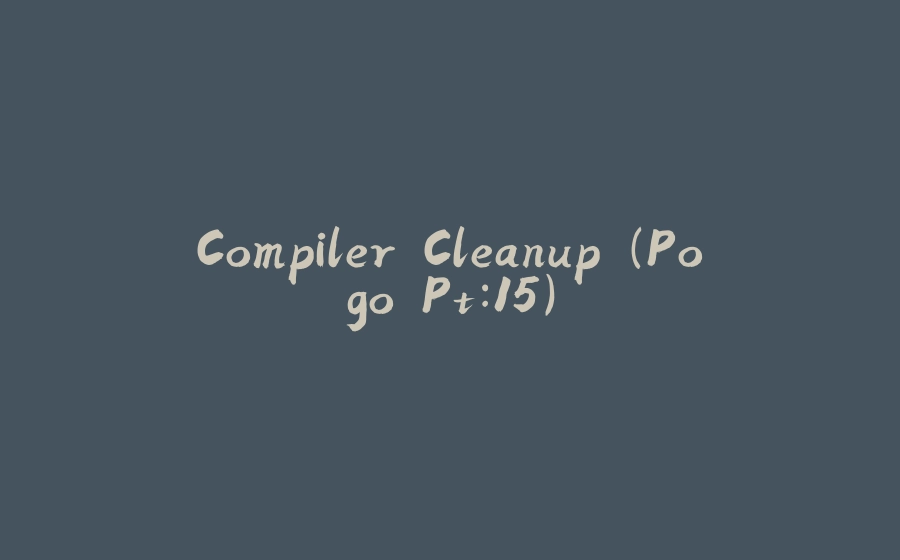


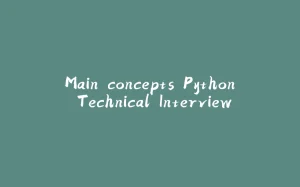
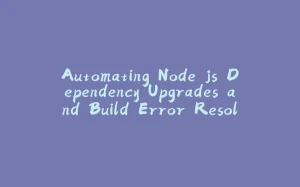


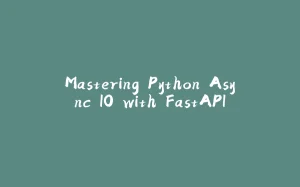





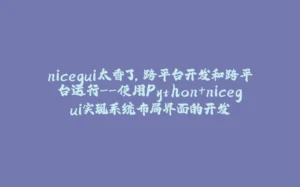
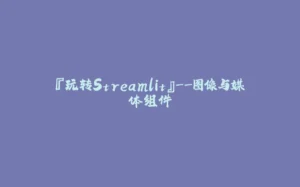

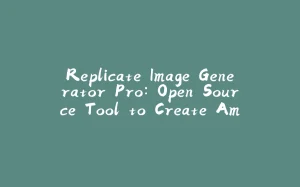
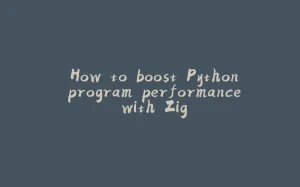
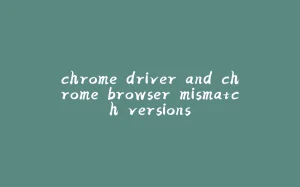
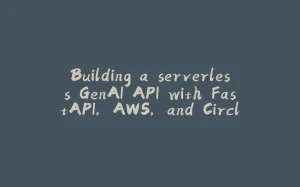




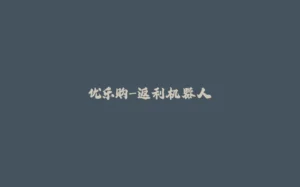

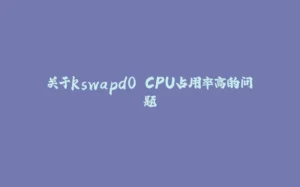
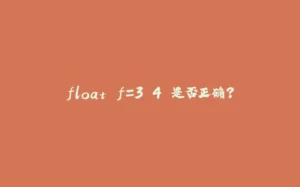





暂无评论内容